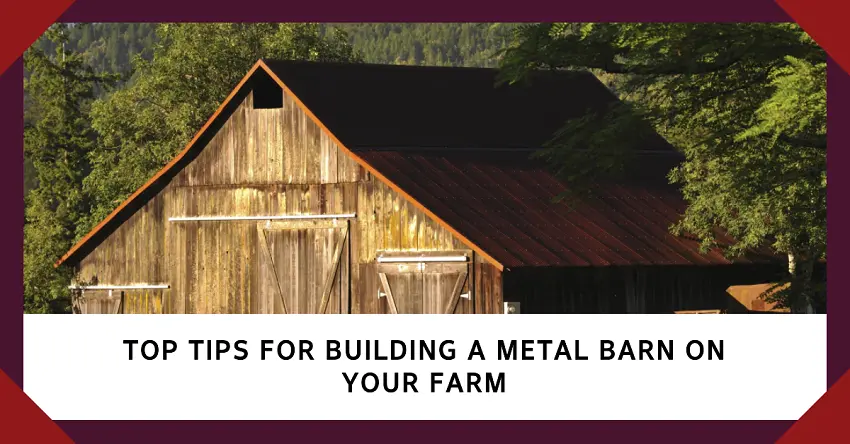The modern farmer recognizes the importance of having durable, cost-effective, and efficient structures on their property. Enter the metal barn – a staple for those looking to blend longevity with functionality. If you’re contemplating building a metal barn on your farm, this article will guide you through the essential steps and tips to ensure your investment stands the test of time.
Understand Your Needs and Plan Accordingly
Before you even break ground, you must have a clear vision of what you need from your barn. Will it be a home for livestock? A storage area for machinery or produce? Or perhaps a multi-purpose structure? Identifying its primary purpose will guide the size, design, and features of your barn. Consider future growth or diversification of your farm; this might influence your current build. It’s always cheaper and easier to incorporate features in the initial build than retrofitting later on.
Select the Right Site
Location, location, location! The position of your barn plays a crucial role in its functionality and longevity. It’s essential to choose a site that’s elevated to prevent water accumulation and provides easy access year-round. The orientation is equally vital; positioning your barn to reduce direct sun exposure during the hottest parts of the day can keep the interior cooler and more comfortable.

Invest in Quality Materials
Not all metal barns are created equal. The quality of the materials will determine the lifespan and maintenance requirements of your structure. Galvanized steel, for instance, offers excellent resistance to rust and can stand up to harsh weather conditions.
| Material Type | Benefits | Considerations |
| Galvanized Steel | Rust-resistant, durable, long lifespan | Slightly more expensive, heavier |
| Aluminum | Lightweight, corrosion-resistant | Less sturdy in high winds, can dent easily |
| Iron | Strong and durable | Prone to rust, requires regular maintenance |
Consider Ventilation and Insulation
If your metal barn is intended to house livestock, ventilation becomes a priority. Proper airflow prevents moisture build-up, reduces the risk of disease spread, and ensures a comfortable environment for your animals. Similarly, insulation can be a game-changer. Insulating your barn not only provides a stable temperature but can also lead to significant energy savings if you’re heating the barn in winter or cooling it in summer.
Hire Experienced Contractors
Building a metal barn is a significant investment, both in terms of time and money. To ensure that your project goes off without a hitch, consider hiring experienced contractors who specialize in metal structures. Their expertise can guide you in design choices, ensure that the construction meets all local codes and regulations, and provide peace of mind knowing your barn is built to last.
Regular Maintenance is Key
While metal barns require less maintenance than their wooden counterparts, they aren’t entirely maintenance-free. Regularly inspecting the structure for signs of wear, damage, or rust is essential. Promptly addressing any issues will prolong the barn’s life and keep it looking fresh and new.
Factor in Storage and Accessibility
As farms continue to evolve and modernize, the tools and machinery used become more varied and specialized. Thus, when designing your metal barn, it’s vital to consider the storage needs not just for the present but also for the future. Allocate spaces for tool racks, shelving, and perhaps even a loft for additional storage. Ensure that doorways are wide and tall enough to accommodate large machinery or equipment. If you’re planning on storing perishable goods, consider areas that can be temperature controlled or are shielded from direct sunlight.

Additionally, think about accessibility; having sliding doors, ramps, or even a loading dock can make the movement of goods and machinery smoother and more efficient. Proper planning in the design phase will ensure your barn remains versatile and functional as your farming needs grow and change.
Conclusion
A metal barn can be a fantastic addition to your farm, offering durability, functionality, and cost-effectiveness. By considering your needs, investing in quality materials, ensuring proper ventilation and insulation, and opting for experienced contractors, you can enjoy a metal barn that serves your farm well for decades to come. With the right planning and attention to detail, your metal barn will not just be a structure but a testament to your farm’s resilience and modernity.






